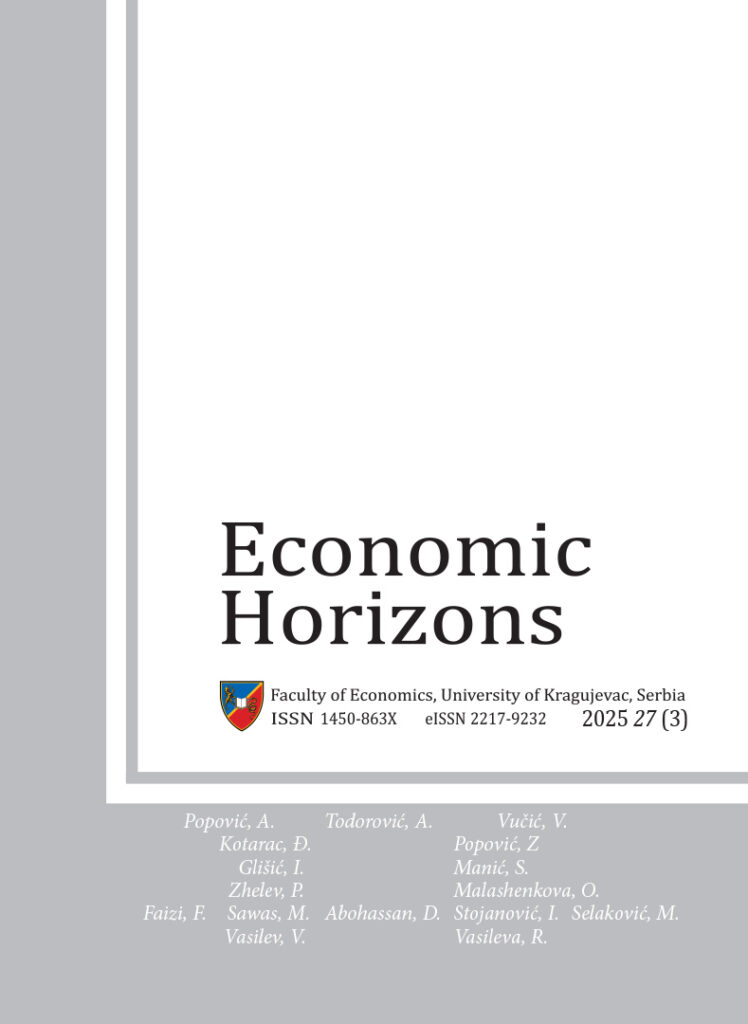
THE JOURNAL IS PUBLISHED
THREE TIMES A YEAR
in April, August and December
Khushboo Gupta1, Venkata Ramana Thanikella2, Omkar Singh Deol3 and Kanishka Gupta4
1Amity College of Commerce and Finance, Amity University, Noida, India
2Amity Business School, Amity University, Noida, India
3Shaheed Bhagat Singh Evening College, University of Delhi, New Delhi, India
4Symbiosis Centre for Management Studies, Symbiosis International, Noida, India
The objective of the current paper is to study the relationship between company financial factors, macroeconomic factors and the market measures of risk of the Consumer Goods Sector of the Indian economy. Systematic, unsystematic and total risks are the measures of the risk used. Dynamic panel data regression techniques have been applied to the data of the companies comprising the S&P BSE FMCG index of the Bombay Stock Exchange (BSE) of India. The time frame established for the study is the period from 2011 to 2020. The results show that on average 89.6 percent of total risk is attributable to the unsystematic portion, whereas the rest is attributable to the systematic portion. Furthermore, both the financial variables and macroeconomic variables can be used to gauge the risk related to investments. Moreover, marketing personnel may justify their expenditure that builds their brand value as these efforts will reduce the risk for investors and increase their wealth. The results of this study are especially useful for business managers, as well as investors, helping them to understand risk and the factors contributing to it, which may provide useful insights regarding cost-of-capital and value-of-firm calculations.
Keywords:
JEL Classification:
Since March 2015, the Journal is indexed in DOAJ
Since November 2013, the Journal is indexed in ProQuest – ABI/INFORM
Since October 2013, the Journal is indexed in Cabell’s Directories
Since September 2013, the Journal is indexed in Index Copernicus Journals Master List 2012
Since March 2013, the Journal has been evaluаted and accepted for listing in EconLit (American Economic Association Publications)
Since January 2013, the Journal has been included into EBSCO’s databases
Since November 2012, the Journal has been included into Ulrich’s Periodicals Directory
Since March 2015, the Journal is indexed in DOAJ
Since November 2013, the Journal is indexed in ProQuest – ABI/INFORM
Since October 2013, the Journal is indexed in Cabell’s Directories
Since September 2013, the Journal is indexed in Index Copernicus Journals Master List 2012
Since March 2013, the Journal has been evaluаted and accepted for listing in EconLit (American Economic Association Publications)
Since January 2013, the Journal has been included into EBSCO’s databases
Since November 2012, the Journal has been included into Ulrich’s Periodicals Directory